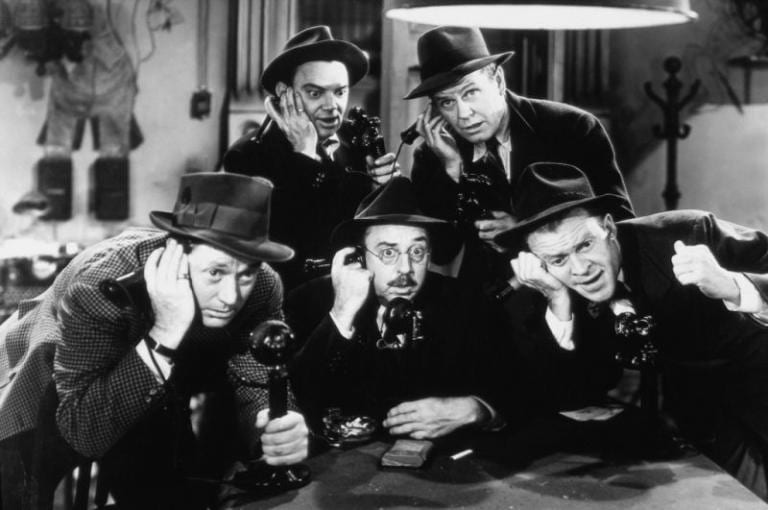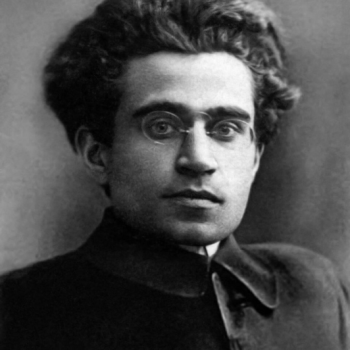Journalism is in a bad way right now. Information technology is putting hard-copy news papers out of business, the public’s trust in the news media is dropping, and reporters’ political bias is manifesting itself in “fake news.” People are increasingly getting their news from the internet for free, but the online websites are getting the news they display from the financially-troubled newspapers.
“Modernist” journalism projects an objectivity that it does not really attain. But it thinks it does.
Read the whole article. Here is a sample. From Les Sillars, The Future of News:
For about a century, American journalism had a paradigm that positioned the industry as essential to liberal democracy: journalistic objectivity. It promised objective, reliable coverage of events that mattered to citizens regardless of partisan beliefs, and it was supported by a lucrative, ad-driven business model. The upshot was significant cultural authority and massive profits.
That paradigm is now a smoking ruin. The percentage of Americans who say they trust the news media has plummeted forty points in forty years. At the same time, newspapers and magazines are struggling to survive in the Internet age, when news sources have proliferated and ad money flows to new platforms.
The issue, however, is not only that journalists are failing to meet professional ideals or that the industry suffers financial woes. The collapse of the old model is due to internal inconsistencies that corrupted what should be—what can be—a profoundly noble calling: to see the world clearly and help others see it clearly, too. . . .
The rhetoric of journalistic objectivity promised more than mere accuracy, named sources, and broadminded fairness. It created the impression that facts can be separated from values, and so purported to offer knowledge without bias, information without opinion—just facts. Walter Cronkite’s famous newscast sign-off captured the approach: “And that’s the way it is.”
But there is no view from nowhere, no independent vantage point from which a reporter (or anyone else) can gather and present “just the facts.” The process of converting events and people into news requires interpretation and an interpreter. Deciding which stories to write, whom to interview, which facts to include, and how to frame those facts is a very human process. Where society has a consensus on how to interpret a given fact (for example, child abuse is bad), mainstream news outlets often offer excellent coverage that appears “unbiased.”
Today’s fractured society now exposes the effects of a reporter’s worldview. We’re more likely to see it in coverage of contested issues, from abortion to gender to religious liberty. Liberal audiences tend not to notice mainstream reporters’ larger commitments because they share them; political and social conservatives, on the other hand, for decades have complained about the bias of mainstream coverage. Sometimes reporters slant coverage deliberately, sometimes not, but clearly they do slant it.
[Keep reading. . .]
If biases are inevitable, it is best to acknowledge them openly. Ironically, doing so can help journalists be more objective. It also helps if they are fair.
If all news is shaped by the worldview of the person who writes it up, does that mean that it is legitimate for conservatives to get their news from conservative sources, for liberals to attend mainly to liberal sources, for Christians to seek out Christian sources?
At one time, every big city had its Democratic paper and its Republican paper, with every other faction having publications of its own. Is there anything really wrong with that? This changed with 20th century modernism, with its trust in objective, scientific reason, creating the impression that there is only one true account of the facts, though, looking back, the bias there too was evident. But now postmodernists, who believe the truth is a construction, feel no compunction about generating fake news.
A Christian would say that journalism that takes seriously moral reality is being objective. And that those who limit reality only to what they can see are the subjective ones.
As the function of journalism moves online, do you look just for facts? Is there anyplace where you can find them apart from a worldview? Do you mainly go to sites that share your perspective? Or do you also go to sites from other perspectives?
Do you have any suggestions for how “the smoking ruin” of journalism can be rebuilt into something better?
Illustration: His Girl Friday [classic journalism movie (1940)], (film screenshot) [Public domain] via Wikimedia Commons












